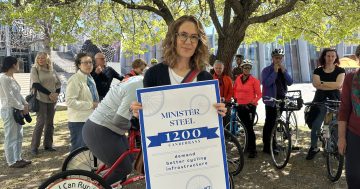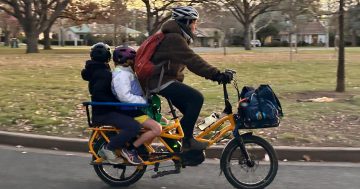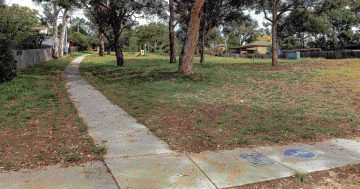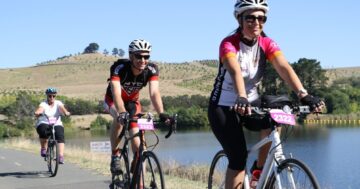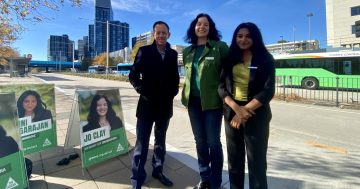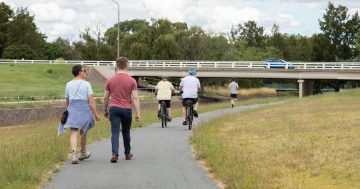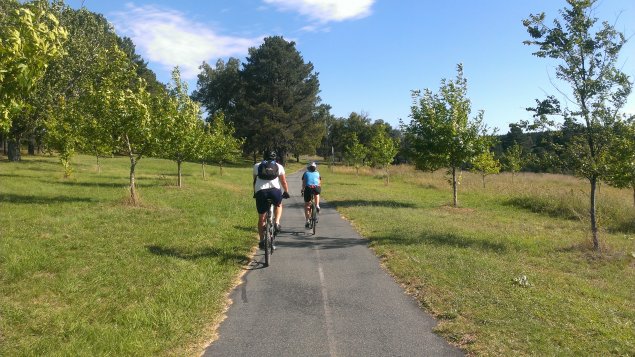
Would you be more likely to ride a bike if you didn’t have to wear a helmet? Photo: File.
Car-free days should be trialled, speed limits should be reduced, parking should be limited and people should be able to ride a bike without a helmet – all in a bid to encourage Canberrans to try active modes of travel.
That’s according to a recent discussion paper from ACT Greens spokesperson for active travel Jo Clay, which presented a series of proposals intended to help move the ACT away from its current reliance on cars for transport.
“We need more active travel. We are in a climate crisis and around 60 per cent of our tracked emissions come from transport,” Ms Clay said.
“Congestion in Canberra is also a problem and it is getting worse at a rate over three times faster than most Australian capital cities. We have to do more to help Canberrans choose the original zero-emissions transport method of active travel. We need to make active travel fun, accessible and safe for everyone.”
Among what Ms Clay described as the “package of ideas”, she identified major areas of focus: that the government plan ahead for active travel, that it builds and subsequently maintains a network of footpaths and shared paths, that it promotes active travel by removing legislative and planning barriers and lastly, that it learns what is working locally and in other jurisdictions.
“The ACT Government has set really ambitious goals for active travel but we are not increasing uptake fast enough to reach those goals. If we want a different result, we need to do things differently,” Ms Clay said.
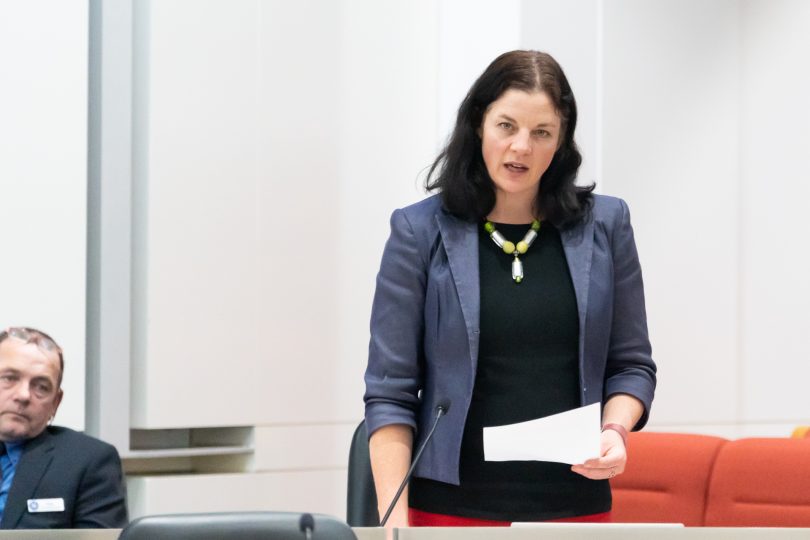
ACT Greens MLA Jo Clay said more can be done to promote active travel. Photo: Region Media.
The discussion paper identified 22 proposals that could help encourage the take-up of walking, cycling and even e-scootering or catching public transport.
Many of them focus on a need to improve the shared and cycle path network, not only through building more paths but through better maintenance of networks, both existing and newly-built.
According to the paper, the government should spend the equivalent of 20 per cent of the capital works road budget on dedicated purpose-built infrastructure for walking, cycling and active travel.
It also suggested that an audit of footpaths and shared paths is publicly reported on an annual basis with a target of 90 per cent to be maintained in ‘good condition’.
Another change could be ensuring traffic light sequencing benefited pedestrians and riders over cars.
On the more “innovative” end of things, the paper suggested trying out car-free days and car-free zones in each electorate.
The government could also trial removing some roads completely or at least reducing their size to make more space for the community and bicycle riders and less space for cars.
Reducing urban car parking, decoupling parking from apartment sales and introducing slower speed limits, along with amending mandatory helmet laws were also suggested.
According to the paper, “cycling participation dropped when mandatory helmet laws were introduced in Australia” and suggested an exemption could be in place – similar to one in the Northern Territory – where riders only have to wear helmets if they ride on the road.
“This off-road exemption could be trialled and the effect on participation measured to see if this increases cycle commuting, especially for short distances within suburbs,” the paper read.
The active travel discussion paper is open for consultation until 30 April. Send an email to clay@parliament.act.gov.au to contact Ms Clay’s office.












